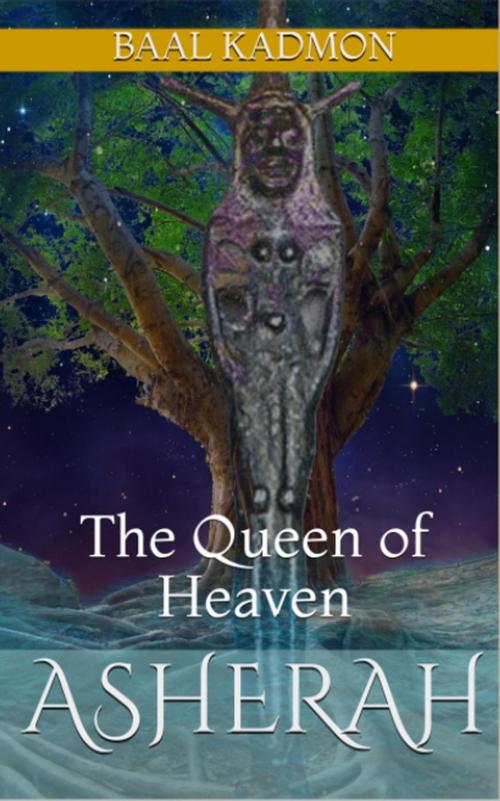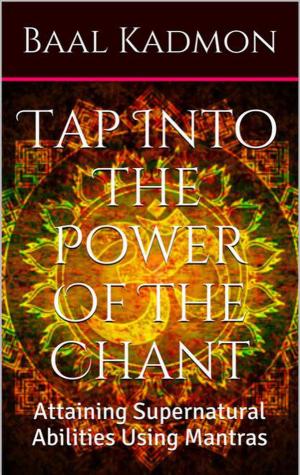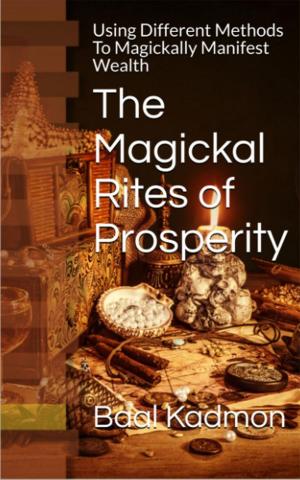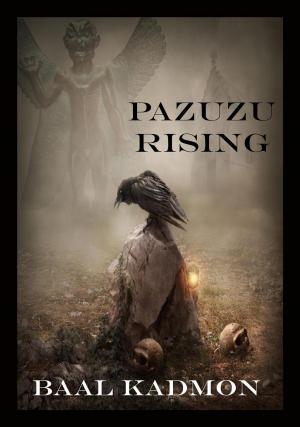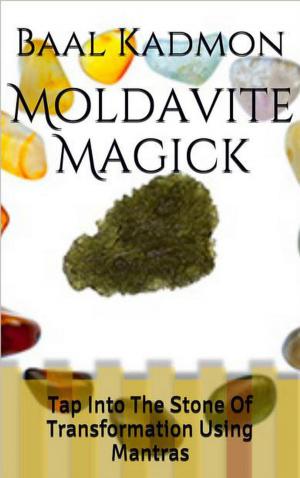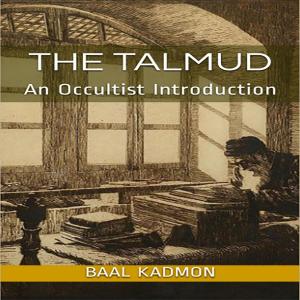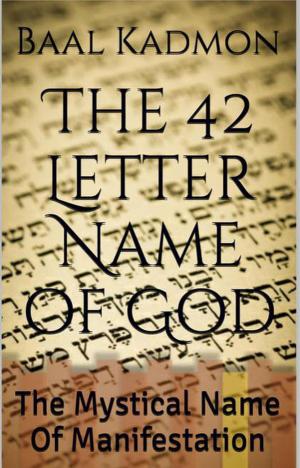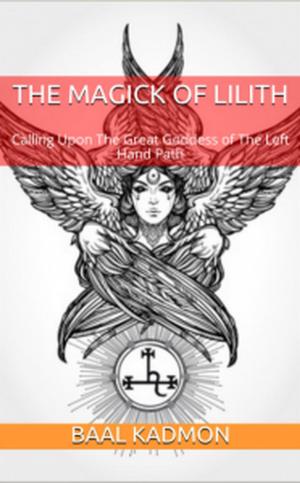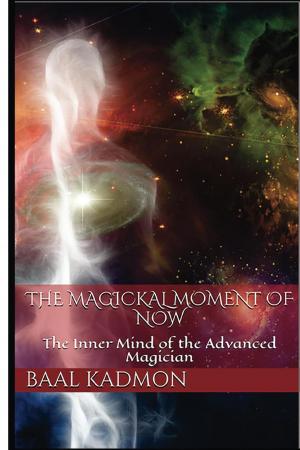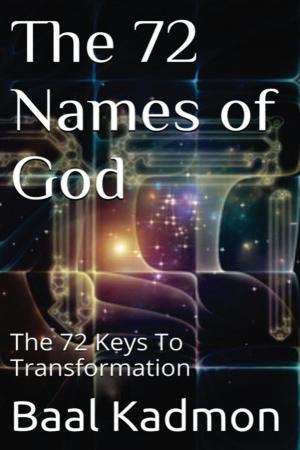Asherah: Queen of Heaven
Canaanite Magick, #1
Nonfiction, Religion & Spirituality, New Age, Magic Studies, Philosophy, Mind & Body| Author: | Baal Kadmon | ISBN: | 9781386222651 |
| Publisher: | Baal Kadmon | Publication: | August 30, 2018 |
| Imprint: | Language: | English |
| Author: | Baal Kadmon |
| ISBN: | 9781386222651 |
| Publisher: | Baal Kadmon |
| Publication: | August 30, 2018 |
| Imprint: | |
| Language: | English |
Asherah has always enchanted me. I recall when I was young and learning the Jewish faith that much of my Sephardic father's family followed, I remember reading verses from the bible; more specifically, the Old Testament that would mention her name. It was one of the very first times I encountered the actual names of other Gods in the Old Testament. Instead of being repelled by her, I was drawn to know more about her. I discovered that she was at least as important as the other Canaanite Gods Baal and El. She is, of course, far more than just a Canaanite Goddess.
Canaanite religion has always been interesting to me because it seemed so elusive and dark. The fact that it was in direct opposition to the Hebrew faith gave me a wee bit of satisfaction at the time. What can I say? Sacrilege and Blasphemy started early for me.
In the bible, we find that the Israelites had many enemies. The two that appear most prominently in the Bible are the Egyptians and the Babylonians. However, I would like to counter that claim. Yes, the Hebrews were enslaved by the Egyptians, at least according to the bible, and yes, the Babylonians sent the Israelites into a cruel exile which left lasting impressions we still see in modern Judaism to this day. However, the biggest enemy, in my estimation were the Canaanites. I say this for two reasons. Archeologically speaking, it appears that perhaps many Israelites themselves were breakaway Canaanites, so it was in their blood so to speak. This is a popular view amongst those who ascribe to the biblical minimalist school of thought. I personally have one foot in biblical Minimalism myself. Although that certainly makes sense to me, it is still not 100% proven. Archeology is still very much on top of this issue. I could go on and on about this, but this is not the book for that.
By far the greatest threat to the Israelites was the Canaanite religion and its ever-present theological threat. As much as the Israelites tried to resist, the Canaanite religion would either seep into the Hebrew faith in covert ways OR they were tempted to worship Canaanite gods outright. Israelites backslide time and time again to the religion of the Canaanites. Even when they emerged from it, Canaanite ideas were well transcribed into the DNA of Israelite religion. This is where Asherah comes in. Notice I do not call it Judaism; Judaism emerges from the Hebrew/Israelite faith but cannot really be called Judaism proper until much later.
Israelite faith and later, by extension, Judaism, at least ON THE SURFACE, does not have a divine feminine within its theological practices and beliefs. However, upon closer examination, we find that they couldn't suppress the divine feminine completely. It was Asherah who emerged as consort to the Hebrew God. This is, of course, quite scandalous, yet, some interesting evidence is present to suggest this.
A few books exist on Asherah so I am going to jump in and add my two cents. I found the others to be rather complex. I will do my best to deconstruct it all in this book, but for the sake of brevity I can't go to deep. Like all my books, I will cover the texts and history. I have many old notes that I will clean up and present here.
We will discuss Asherah's wide-ranging presence from Akkadian sources all the way through Arabian ones and a few more. We will start with the Old Testament sources first since that is essentially what put her on the map of Intellectual history so to speak. We will also learn more about ways to call upon her and tap into her ancient power. She is, after all, the divine consort of God, the Queen of the Heaven.
Asherah has always enchanted me. I recall when I was young and learning the Jewish faith that much of my Sephardic father's family followed, I remember reading verses from the bible; more specifically, the Old Testament that would mention her name. It was one of the very first times I encountered the actual names of other Gods in the Old Testament. Instead of being repelled by her, I was drawn to know more about her. I discovered that she was at least as important as the other Canaanite Gods Baal and El. She is, of course, far more than just a Canaanite Goddess.
Canaanite religion has always been interesting to me because it seemed so elusive and dark. The fact that it was in direct opposition to the Hebrew faith gave me a wee bit of satisfaction at the time. What can I say? Sacrilege and Blasphemy started early for me.
In the bible, we find that the Israelites had many enemies. The two that appear most prominently in the Bible are the Egyptians and the Babylonians. However, I would like to counter that claim. Yes, the Hebrews were enslaved by the Egyptians, at least according to the bible, and yes, the Babylonians sent the Israelites into a cruel exile which left lasting impressions we still see in modern Judaism to this day. However, the biggest enemy, in my estimation were the Canaanites. I say this for two reasons. Archeologically speaking, it appears that perhaps many Israelites themselves were breakaway Canaanites, so it was in their blood so to speak. This is a popular view amongst those who ascribe to the biblical minimalist school of thought. I personally have one foot in biblical Minimalism myself. Although that certainly makes sense to me, it is still not 100% proven. Archeology is still very much on top of this issue. I could go on and on about this, but this is not the book for that.
By far the greatest threat to the Israelites was the Canaanite religion and its ever-present theological threat. As much as the Israelites tried to resist, the Canaanite religion would either seep into the Hebrew faith in covert ways OR they were tempted to worship Canaanite gods outright. Israelites backslide time and time again to the religion of the Canaanites. Even when they emerged from it, Canaanite ideas were well transcribed into the DNA of Israelite religion. This is where Asherah comes in. Notice I do not call it Judaism; Judaism emerges from the Hebrew/Israelite faith but cannot really be called Judaism proper until much later.
Israelite faith and later, by extension, Judaism, at least ON THE SURFACE, does not have a divine feminine within its theological practices and beliefs. However, upon closer examination, we find that they couldn't suppress the divine feminine completely. It was Asherah who emerged as consort to the Hebrew God. This is, of course, quite scandalous, yet, some interesting evidence is present to suggest this.
A few books exist on Asherah so I am going to jump in and add my two cents. I found the others to be rather complex. I will do my best to deconstruct it all in this book, but for the sake of brevity I can't go to deep. Like all my books, I will cover the texts and history. I have many old notes that I will clean up and present here.
We will discuss Asherah's wide-ranging presence from Akkadian sources all the way through Arabian ones and a few more. We will start with the Old Testament sources first since that is essentially what put her on the map of Intellectual history so to speak. We will also learn more about ways to call upon her and tap into her ancient power. She is, after all, the divine consort of God, the Queen of the Heaven.
